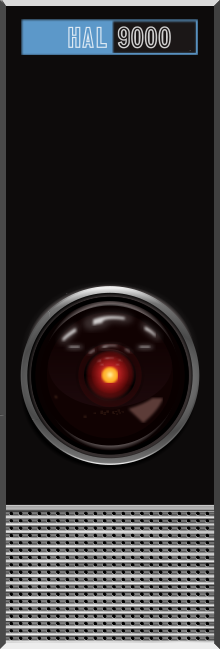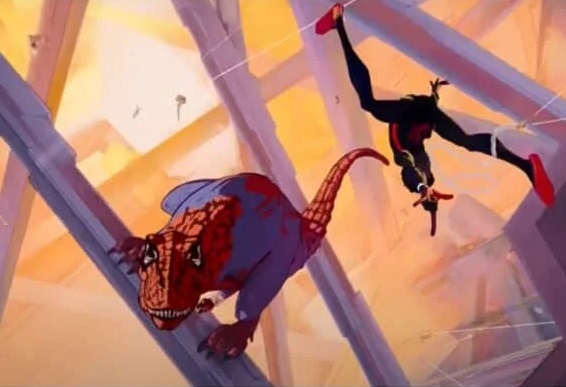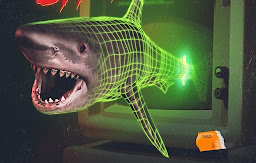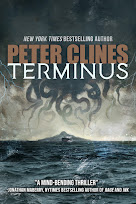I’ve mentioned once or thrice here that one of the toughest lessons for a writer to learn is that something I wrote just might not be that good. I spent time writing, some more time editing it (hopefully), and now on my third or fourth pass I’m forced to admit it’s just… not good. Maybe it doesn’t really work with the character or this particular moment in the story. Maybe it’s really good but it just doesn’t fit in this book.
But also, let’s be honest. Sometimes… it’s just bad. We wrote something that’s crap. It happens.
When this happens, it’s tough, but we usually need to start cutting. Lines of dialogue. Whole paragraphs. Whole chapters. Subplots. Hell, I’ve cut whole characters out of a book and then stitched everything together again around their sudden absence.
And this is a rough thing, to let go of something that we invested time and effort into. I think that’s why people will fight so hard to keep some things. To rationalize why we don’t need to get rid of it. To rewrite and twist and push and try to find a way that makes it work.
Now, there’s two aspects of this I want to address.
First, like I said, the gut reaction is to fight against pulling stuff out of my work. I know I did for years. But as I kept trying to do this, I realized something. This was a natural part of editing. Things are going to go away. If we can accept that we might need to snip a word or three, then it makes sense we might need to snip ten or twenty. Or a hundred.
This is going to sound weird to a few folks, I know, but sometimes you’ve got to write something out to find out you don’t need it. It’s that thing I’ve mentioned once or thrice, that you can’t fix something that doesn’t exist. And part of fixing something is realizing I don’t need that funny character bit or the flashback chapter or maybe the whole romance subplot. They’re ruining the pacing or changing the tone or breaking the flow.
And again, yeah, sometimes they’re just bad.
So we cut it. Tear it out. Delete it. Good riddance!
Well, hang on.
This is the second aspect of tearing things out. Yeah, some of this can go and we can never think of it again. Like blocking someone on social media. Hit the keys, gone, everything’s better. Again, there’s a chance it’s just bad and not worth the effort of trying to make it good.
I spent an afternoon two weeks back trying to structure a chapter for this funny character bit (oh ho, that sounds familiar) and ultimately realized it just wasn’t going to work. It didn’t make sense for at least one of the characters involved. And it ultimately wasn’t even that funny. Definitely not so much that it was worth all this effort. So… gone. No worries.
But some of this stuff… look, maybe we can seal this in virtual tupperware and stick it in the fridge for a bit. There’s nothing wrong with that. Like I mentioned above, that romance subplot might be good, just not good for this book. So why not hang onto it in case the right book comes around?
And this is where, I think, some folks have issues. Because if we’re talking about art, weren’t these words put together for this purpose? Didn’t I artisanally craft this dialogue to come from the mouths of these characters? I mean, if it’s that easy for me to just pull something from one story and toss it into another… well, maybe I’m just some kind of hack. Maybe I don’t care about art at all?
But this just isn’t true. I mean, it’s true that I can’t take that romantic subplot and stick it into another story unaltered. Hell, if nothing else, I’d probably need to change the names. And probably some speech patterns. And possibly references to where/when this is happening. But really that’s just, y’know, writing. If I was creating the scene from scratch, I’d still have to take all these things into consideration.
Also, if I’ve got something I pulled from a manuscript five or six years ago—like any leftovers that’ve been sitting around for a while—I may want to be extra-sure it’s still good. Dialogue shifts, styles change, pop-culture and tech references can get outdated fast. I’m not saying I should toss anything that’s X years old, just that it might need a little more attention before I offer it to anyone.
Y’see, Timmy, sometimes we write bad stuff. No question, everyone does it. But sometimes, we’re just writing good stuff in the wrong book. And when that happens, there’s no shame in packing it up and saving it for later.
But seriously… you’re never going to eat those noodles on the bottom shelf of the fridge. They’re three weeks old now. And they’re furry! Just throw those out.
Next time, I think I’d like to lighten things up a bit and talk about AI and the assassination of JFK.
Until then, go write.








